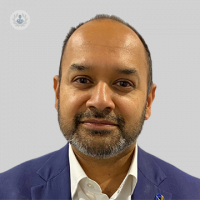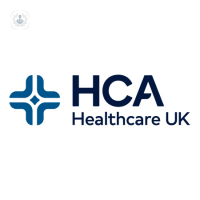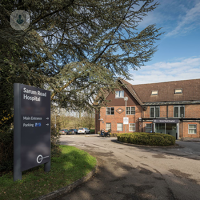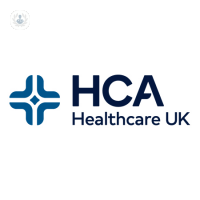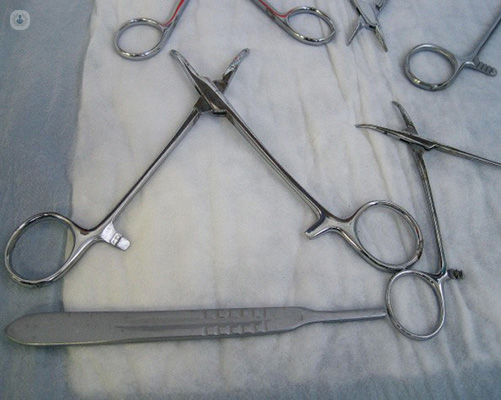
What is circumcision?
Circumcision is the total or partial removal of the foreskin of the penis via a surgical procedure. The foreskin is the skin that covers the head (or glans) of the penis. A general anaesthetic will be used to render the patient unconscious during the procedure or a local anaesthetic will be used to numb the area.
Why is it done?
There are several reasons why circumcision is performed. Some religions and cultures circumcise all male children – this is common in Jewish and Islamic communities as well as several African countries.
There are also a number of medical reasons:
- Phimosis – tight foreskin, which is difficult or impossible to retract. This can cause pain when the penis is erect.
- Paraphimosis – after being retracted, the foreskin cannot return to its natural position. It can restrict blood flow and cause pain, inflammation and swelling of the head of the penis, and more serious complications.
- Recurrent balanitis – inflammation of the foreskin and glans.
- Penis cancer
What does circumcision consist of?
Circumcision is a very simple operation, and is usually performed as a day case. The patient is anaesthetised, either with a general anaesthetic, which makes them unconscious, or a local anaesthetic, which numbs the area.
The foreskin is removed using a scalpel or surgical scissors to behind the head of the penis and the remaining skin is stitched back together with dissolvable stitches.
Preparation for circumcision
Circumcision is considered a very safe treatment. No previous preparation is needed. However, if the patient is going to have a general anaesthetic, they will usually be instructed not to eat or drink anything for several hours before the operation.
Care after the intervention
The recovery of the patient after a circumcision is very fast. Adult patients are usually advised to take a week off work to allow recovery. During this time, it is recommended to wear loose, comfortable clothes. For the first 3-4 days there may be some swelling and discomfort around the head of the penis. Painkillers, such as paracetamol or ibuprofen are usually prescribed to help with the pain. The penis usually heals fully in around ten days. However, it is usually advised not to engage in sexual activity for a full four weeks after the surgery.
11-13-2012 05-31-2023Circumcision
Miss Marie-Klaire Farrugia - Paediatric urology
Created on: 11-13-2012
Updated on: 05-31-2023
Edited by: Aoife Maguire

What is circumcision?
Circumcision is the total or partial removal of the foreskin of the penis via a surgical procedure. The foreskin is the skin that covers the head (or glans) of the penis. A general anaesthetic will be used to render the patient unconscious during the procedure or a local anaesthetic will be used to numb the area.
Why is it done?
There are several reasons why circumcision is performed. Some religions and cultures circumcise all male children – this is common in Jewish and Islamic communities as well as several African countries.
There are also a number of medical reasons:
- Phimosis – tight foreskin, which is difficult or impossible to retract. This can cause pain when the penis is erect.
- Paraphimosis – after being retracted, the foreskin cannot return to its natural position. It can restrict blood flow and cause pain, inflammation and swelling of the head of the penis, and more serious complications.
- Recurrent balanitis – inflammation of the foreskin and glans.
- Penis cancer
What does circumcision consist of?
Circumcision is a very simple operation, and is usually performed as a day case. The patient is anaesthetised, either with a general anaesthetic, which makes them unconscious, or a local anaesthetic, which numbs the area.
The foreskin is removed using a scalpel or surgical scissors to behind the head of the penis and the remaining skin is stitched back together with dissolvable stitches.
Preparation for circumcision
Circumcision is considered a very safe treatment. No previous preparation is needed. However, if the patient is going to have a general anaesthetic, they will usually be instructed not to eat or drink anything for several hours before the operation.
Care after the intervention
The recovery of the patient after a circumcision is very fast. Adult patients are usually advised to take a week off work to allow recovery. During this time, it is recommended to wear loose, comfortable clothes. For the first 3-4 days there may be some swelling and discomfort around the head of the penis. Painkillers, such as paracetamol or ibuprofen are usually prescribed to help with the pain. The penis usually heals fully in around ten days. However, it is usually advised not to engage in sexual activity for a full four weeks after the surgery.
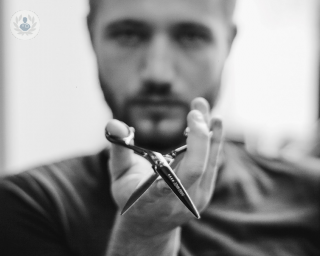

Phimosis: when should you consider circumcision?
By Mr Jaspal Virdi
2024-11-21
Having phimosis isn't something to worry about, and for many young boys, a "wait-and-see" approach can be all that's needed until the skin around the glans naturally loosens. However, for others, a bit more attention is required to help the foreskin move freely, and in some instances, circumcision is needed. Urological surgeon, Mr Jaspal Virdi, explains when you should consider as it a treatment option for a tight foreskin. See more


Circumcision: An expert guide
By Miss Marie-Klaire Farrugia
2024-11-21
Revered consultant paediatric urologist and paediatric and neonatal surgeon Miss Marie-Klaire Farrugia offers expert guidance on circumcision in babies and children, including when it is indicated and what to expect from the recovery period to follow. See more


Adult circumcision: when is it needed?
By Mr Andrew Ballaro
2024-11-20
Circumcision is often needed due to medical conditions such as recurrent balanitis, cancer of the penis, paraphimosis and other conditions. In this article with leading consultant urologist Mr Andrew Ballaro, we found out everything you need to know about adult circumcision, the risks, the recovery time, whether the surgery is safe and if circumcision is painful. See more


Is a circumcision in children medically necessary?
By Ms Johanna Thomas
2024-11-19
Circumcision is the removal of the foreskin of the penis and may be carried out for different reasons in children. Highly experienced consultant urologist Ms Johanna Thomas tells us why a child may need to be circumcised, how circumcision is performed and alternatives. See more
Experts in Circumcision
-
Miss Marie-Klaire Farrugia
Paediatric urologyExpert in:
- Paediatric urology
- Urinary incontinence
- Urinary tract infection
- Vesicoureteral reflux (VUR) (kidney reflux)
- Circumcision
- Hydronephrosis
-
Ms Jhumur Pati
UrologyExpert in:
- Cystitis
- Prostatitis
- Circumcision
- Male infertility
- Vasectomy
- Prostatectomy (prostate removal)
-
Mr Gordon Muir
UrologyExpert in:
- Prostate
- Prostate cancer
- Erectile dysfunction
- Prostatectomy (prostate removal)
- Circumcision
- Frenuloplasty
-
Diane De Caluwe
Paediatric urologyExpert in:
- Hydronephrosis
- Paediatric urology
- Circumcision
- Urinary tract infection
- Diurnal enuresis (daytime wetting)
- Hernia
-
Mr Rono Mukherjee
UrologyExpert in:
- Urinary tract infection
- Benign prostate enlargement
- Kidney stones
- Urinary incontinence
- Erectile dysfunction
- Circumcision
- See all

The Princess Grace Hospital - part of HCA Healthcare
The Princess Grace Hospital - part of HCA Healthcare
The Princess Grace Hospital, 42-52 Nottingham Pl, W1U 5NY
No existe teléfono en el centro.
By using the telephone number provided by TOP DOCTORS, you automatically agree to let us use your phone number for statistical and commercial purposes. For further information, read our Privacy Policy
Top Doctors

Sarum Road Hospital - part of Circle Health Group
Sarum Road Hospital - part of Circle Health Group
Sarum Rd, Winchester SO22 5HA
No existe teléfono en el centro.
By using the telephone number provided by TOP DOCTORS, you automatically agree to let us use your phone number for statistical and commercial purposes. For further information, read our Privacy Policy
Top Doctors

The Portland Hospital - part of HCA Healthcare
The Portland Hospital - part of HCA Healthcare
205 - 209 Great Portland St. W1W 5AH
No existe teléfono en el centro.
By using the telephone number provided by TOP DOCTORS, you automatically agree to let us use your phone number for statistical and commercial purposes. For further information, read our Privacy Policy
Top Doctors
-
The Princess Grace Hospital - part of HCA Healthcare
The Princess Grace Hospital, 42-52 Nottingham Pl, W1U 5NY, Central LondonExpert in:
- Cancer
- General Surgery
- Orthopaedic surgery
- Robotic Surgery
- Intensive care
- Sports Medicine
-
Sarum Road Hospital - part of Circle Health Group
Sarum Rd, Winchester SO22 5HA, WinchesterExpert in:
- Vascular Surgery
- Cardiology
- Shoulder surgery
- Hand surgery
- General Surgery
- Orthopaedic surgery
-
The Portland Hospital - part of HCA Healthcare
205 - 209 Great Portland St. W1W 5AH, Central LondonExpert in:
- Neurological spinal surgery
- Orthopaedic spinal surgery
- Maternity care
- Pregnancy
- Scoliosis
- In vitro fertilisation (IVF)
- See all
- Most viewed diseases, medical tests, and treatments
- Undescended testicle (Cryptorchidism)
- Testicular ultrasound
- Abdominal pain
- Minimal access surgery (keyhole surgery)
- NanoKnife
- Vaginal dryness
- Pelvic pain syndrome
- Kidney stones
- Medicolegal
- Cleft palate




